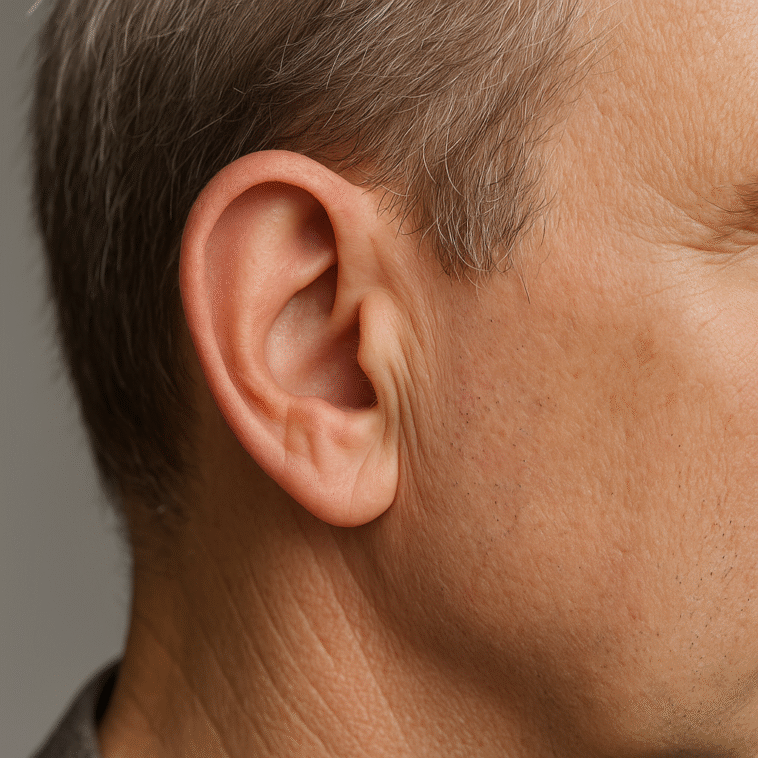 Causes of Hearing Loss: Understanding the Silent Thief of Sound
Causes of Hearing Loss: Understanding the Silent Thief of Sound
Discover Why We Lose the World’s Most Precious Sense
Hearing is a gift so natural we rarely notice it — until it starts to fade. The causes of hearing loss range from sudden trauma to slow, invisible damage over decades. By the time many people realize what’s happening, precious sounds — laughter, music, birdsong — have slipped away.
But what exactly robs us of our hearing? From genetics to modern lifestyle choices, let’s explore the major reasons why millions experience hearing loss every year.
 Types of Hearing Loss — and Why It Matters
Types of Hearing Loss — and Why It Matters
Before diving into the causes of hearing loss, it helps to know the three main types:



Each type can come from different causes — some avoidable, others written in our DNA.
 1. Noise-Induced Hearing Loss (NIHL)
1. Noise-Induced Hearing Loss (NIHL)
One of the most common causes of hearing loss, especially in younger generations.
How it happens:
-
Loud concerts, earbuds at max volume, motorcycles, or power tools produce intense sound waves.
-
These waves damage the tiny hair cells in the cochlea.
-
Once damaged, these cells do not regrow.
Key signs:
-
Ringing in the ears (tinnitus)
-
Difficulty hearing conversations in noisy places
Tip: Follow the “60/60 rule” — listen at no more than 60% volume for 60 minutes at a time.
 2. Age-Related Hearing Loss (Presbycusis)
2. Age-Related Hearing Loss (Presbycusis)
With age, the ear’s delicate structures wear down naturally.
Facts:
-
Affects about 1 in 3 people over age 65.
-
Often starts with trouble hearing high-pitched voices and background noise.
Why?
-
Gradual loss of hair cells
-
Changes in the auditory nerve and brain pathways
Though natural, lifestyle choices like smoking or constant loud noise can make it worse.
 3. Genetic & Congenital Causes
3. Genetic & Congenital Causes
Some babies are born with hearing problems because of:
-
Inherited genetic mutations
-
Maternal infections during pregnancy (e.g., rubella, CMV)
-
Premature birth complications
These causes of hearing loss remind us it isn’t just an “old person’s issue.”
 4. Ear Infections & Chronic Disease
4. Ear Infections & Chronic Disease
Repeated middle ear infections can leave scar tissue or damage tiny bones that transmit sound.
Other diseases can also trigger hearing loss:
-
Diabetes (affects blood flow to the inner ear)
-
Autoimmune disorders
-
Meniere’s disease (causes dizziness and fluctuating hearing)
 5. Sudden Trauma & Accidents
5. Sudden Trauma & Accidents
Accidents can create instant hearing loss:
-
Skull fractures
-
Perforated eardrum from a sharp object
-
Sudden blast of noise (explosions or gunshots)
These highlight how fragile hearing truly is.
 6. Ototoxic Medications
6. Ototoxic Medications
Some drugs harm the inner ear, especially with prolonged use:
-
Certain chemotherapy drugs
-
Strong antibiotics (aminoglycosides)
-
Loop diuretics
-
High doses of aspirin
Doctors often weigh this risk carefully when prescribing.
 7. Earwax Blockage
7. Earwax Blockage
Simple, but surprisingly common among the causes of hearing loss.
Too much wax can:
-
Block sound
-
Create pressure
-
Cause temporary hearing loss
Tip: Avoid cotton swabs deep in the ear. Consider professional cleaning instead.
 8. Viral & Bacterial Infections
8. Viral & Bacterial Infections
Meningitis, measles, and mumps can damage the cochlea.
Viruses like herpes or CMV can silently attack the inner ear, sometimes before birth.
 9. Neurological Disorders & Tumors
9. Neurological Disorders & Tumors
Conditions like multiple sclerosis, strokes, or tumors on the hearing nerve (acoustic neuroma) can cause:
-
Hearing loss
-
Tinnitus
-
Balance problems
 10. Lifestyle Factors
10. Lifestyle Factors
Choices we make daily can increase risk:
-
Smoking: reduces blood flow to the inner ear
-
Heavy alcohol use
-
Poor diet lacking in key nutrients
Together, they quietly damage hearing over years.
 Modern Life & “Hidden Hearing Loss”
Modern Life & “Hidden Hearing Loss”
Researchers warn of hidden hearing loss: people who pass hearing tests yet struggle to hear in noisy places.
Possible modern causes:
-
Constant earbud use
-
Sound pollution from cities
-
Daily exposure to low-level noise stress
 When Hearing Loss Sneaks Up
When Hearing Loss Sneaks Up
Unlike sudden trauma, many causes of hearing loss work slowly:
-
You might turn the TV louder.
-
Ask people to repeat themselves.
-
Avoid noisy restaurants.
Often, family notices first.
 Diagnosis & What to Do
Diagnosis & What to Do
If you suspect hearing issues:
-
Get a professional hearing test.
-
See an ENT (ear, nose & throat doctor) or audiologist.
They’ll check:
-
Earwax
-
Middle ear function
-
Inner ear health
 Treatment Options
Treatment Options
Options depend on cause and severity:




 Prevention: What Actually Helps
Prevention: What Actually Helps
-
Limit headphone volume (under 85 dB)
-
Wear ear protection at concerts or job sites
-
Quit smoking
-
Treat infections early
-
Get regular hearing check-ups if you have risk factors
 You Might Like
You Might Like


 Respect the Soundtrack of Your Life
Respect the Soundtrack of Your Life
The causes of hearing loss range from unavoidable genetics to lifestyle choices entirely in our control.
Your hearing isn’t just a sense — it’s your connection to laughter, music, and the voices you love.
Protect it today — because once it’s gone, the silence can feel endless.
Share this:
- Click to share on Facebook (Opens in new window) Facebook
- Click to share on X (Opens in new window) X
- Click to share on LinkedIn (Opens in new window) LinkedIn
- Click to share on Reddit (Opens in new window) Reddit
- Click to share on Tumblr (Opens in new window) Tumblr
- Click to share on Pocket (Opens in new window) Pocket
- Click to share on WhatsApp (Opens in new window) WhatsApp

